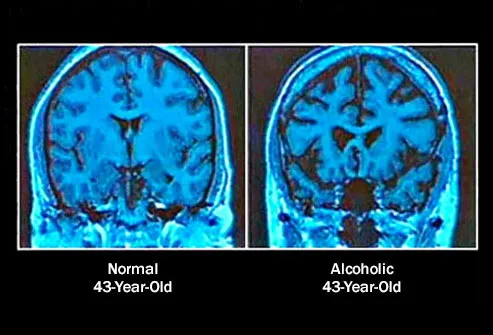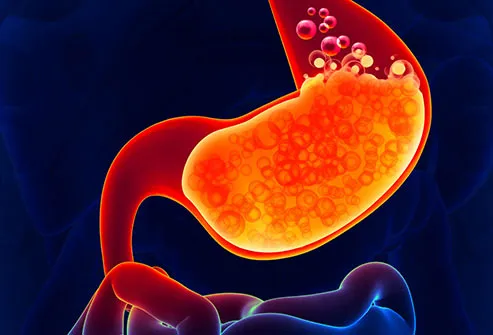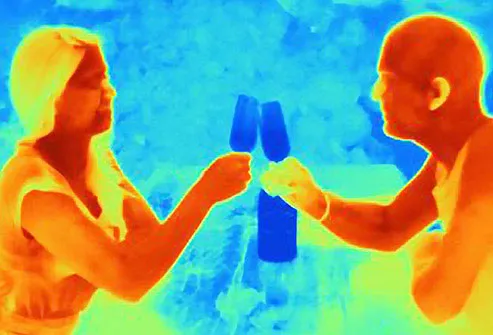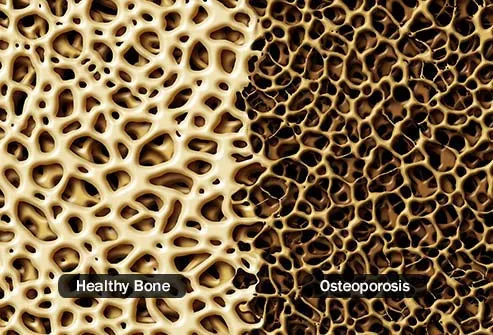It Goes to Your Head

How does alcohol affect the brain and body? Alcohol starts to alter your brain about 30 seconds after you drink it. You may feel mentally slower and have slower reflexes. You may notice changes in your mood and balance. Alcohol impairs long-term memory so you may not remember what you do and say when you drink.
A Smaller Brain

Another way in which alcohol affects the body is that long-term drinking shrinks the brain and alters the way the brain works. Drinking alters and shrinks brain cells. This, in turn, compromises your ability to learn, think, and remember. You may have difficulty regulating body temperature and controlling your movements.
Does It Help You Sleep?

Alcohol makes you sleepy, so you are likely to fall asleep more easily. But alcohol hurts the quality of sleep. Your system will metabolize alcohol while you are sleeping. Once it’s out of your system, you're likely to wake up and toss and turn. Alcohol impairs REM sleep, the type you need to feel well rested and restored. Alcohol also increases the risk of nightmares and vivid dreams. You may also wake up to use the restroom more often.
Increase in Stomach Acid

Alcohol affects your stomach lining and increases the production of stomach acid. When acid builds up while you're drinking, you may get nauseated and throw up. Long-term heavy drinking may lead to stomach ulcers. High levels of stomach acid impair your ability to feel hungry. Heavy drinkers often also develop nutrient deficiencies.
Diarrhea and Heartburn

Alcohol irritates the intestine and colon and may decrease the transit time of food through your system. The result is that you may get chronic diarrhea if you drink regularly. Alcohol also relaxes the sphincter in your esophagus that keeps stomach contents where they belong. When this happens, you may have acid and food come back up your esophagus, leading to heartburn and reflux.
Always Running to the Bathroom

Your brain makes antidiuretic hormone, or ADH, that affects your kidneys' ability to make urine. When you drink, your brain doesn’t make as much of this hormone, so you have to urinate more often. This may then lead to dehydration. Chronic heavy drinking is not only toxic for your body, it is also hard on your kidneys.
It Hurts Your Liver

Your liver breaks down alcohol when you drink and it processes toxins. Long-term heavy drinking results in the buildup of fatty tissue in the liver, which damages it. This impairs blood flow through the liver, and liver cells suffer. As liver tissue is irreparably damaged, it forms scars and doesn’t work as well. This is called cirrhosis.
Alcohol-Induced Pancreatitis and Diabetes

The pancreas produces insulin and compounds to assist the intestines in breaking down food. Alcohol impairs this process. Toxins in alcohol lead to inflammation in the pancreas. If the process continues long-term, the pancreas may lose the ability to make insulin, which may lead to the development of diabetes. Long-term heavy alcohol consumption also increases the chance of developing pancreatic cancer.
What Happens In a Hangover?

Perhaps one of the best known short term effects alcohol has on the body is the hangover. Alcohol dehydrates you and expands blood vessels in the brain and body. This produces a headache. Your stomach detects toxins in the alcohol and wants to expel them so you may get nausea and vomiting. The liver works overtime to process alcohol, so it doesn't release sugar into the bloodstream. You may feel weak and shaky.
Effects on the Heart

How does alcohol affect the body? It affects the heart, for one. Heavy drinking affects electrical impulses that are responsible for heart beat. Long-term heavy drinking can permanently alter heart beat and increase the risk of cardiomyopathy. Excess drinking of alcohol increases the risk of stroke and high blood pressure, too.
Alterations in Body Temperature

Alcohol causes your blood vessels to widen and relax, so you get flushed. You lose body heat and this in turn may cause your body temperature to go too low. Long-term chronic alcohol consumption increases blood pressure by boosting the production of cortisol, a stress hormone that causes blood vessels to narrow. This, in turn, causes your heart to pump harder to circulate blood throughout the body.
Immune System Effects

Here's one connection you may not know about between alcohol consumption and your health: your immune system. Alcohol inhibits the immune system. You are more likely to get sick, and you have fewer white blood cells, approximately 24 hours after you drink alcohol. Studies also show that people who drink alcohol heavily and long-term are at much greater risk of getting sick with pneumonia and tuberculosis.
Hormone Alterations

Hormones affect sex drive, digestion, reproduction, and sexual function. Drinking alcohol alters hormone levels and can affect all these processes. If you drink heavily, you may notice it affects your sex drive, digestion, menstrual cycle, and ability to get pregnant. Men may notice difficulty with erections, decreased sperm count, and shrinking testicles when they drink alcohol heavily.
Hearing Loss

Drinking alcohol negatively affects hearing, but the mechanism is unknown. Some people think alcohol affects the area of the brain that processes sound. Alcohol may damage small hairs within the inner ear that are necessary for hearing. Or it may damage nerves in the inner ear. Over time you may notice you need sounds to be louder in order to hear them. People who drink alcohol long-term often experience hearing loss.
Thin Bones, Less Muscle

Heavy alcohol consumption alters calcium levels and it affects the levels of hormones that are necessary for the growth of new bone. Alcohol consumption makes bone thin and fragile, which is known as osteoporosis. Alcohol impairs blood flow to muscles and interferes with the growth of new muscle tissue. Habitual excessive alcohol consumption results in a decrease in muscle mass and decreased strength.
Alcohol: How It Can Affect Your Body
This tool does not provide medical advice. See additional information: 
© 1996-2024 WebMD, LLC. All rights reserved.
